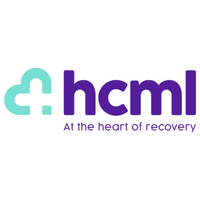How mental and social wellbeing are intrinsically linked with recognition
Recognition is far more than a workplace perk; it is a fundamental driver of mental and social wellbeing.
At its core, recognition satisfies a basic human need: to feel seen, valued and connected.
When employees are acknowledged for their contributions, it reinforces their sense of purpose, boosts self-esteem, and reduces feelings of isolation which are key ingredients for a healthy, engaged, and resilient workforce.
When an employee is recognised, whether through verbal praise, a written note, or a formal award, the brain releases dopamine, a neurotransmitter that reinforces the behaviour that led to the reward.
This neurological response strengthens positive workplace behaviours such as collaboration, innovation and discretionary effort.
Naturally driven
Recognition also plays a vital role in motivation, supported by well-established psychological theories. People are naturally driven when they feel competent, autonomous, and connected to others.
Recognition supports these needs by affirming an employee’s value, reinforcing their strengths, and building stronger relationships within teams. It also enhances self-esteem and helps individuals feel more secure and confident in their roles.
From a cultural perspective, recognition is a powerful enabler of engagement and performance.
Employees who feel appreciated are more likely to be productive, loyal, and committed to their organisation.
When people know their efforts are valued, they are more inclined to go the extra mile. Recognition helps create a positive feedback loop in that good work is acknowledged, which encourages more good work.
This cycle contributes to a high-performance culture where appreciation is embedded in everyday interactions.
Guiding behaviour
Recognition can also serve as a subtle but effective way to guide behaviour. Celebrating inclusive actions, innovative thinking, or collaborative efforts encourages others to follow suit.
Over time, this helps shape a more positive and values-driven workplace. HR professionals can use recognition as a strategic tool to reinforce the behaviours and values that matter most to the organisation, aligning individual actions with broader business goals.
This proactive approach to recognition helps shape the overall culture of an organisation.
When recognition is embedded into team rituals, performance reviews, and leadership practices, it becomes part of the company’s DNA.
A culture of appreciation not only supports talent retention but also enhances the organisation’s ability to attract new talent. It signals to current and prospective employees that their contributions will be valued and celebrated.
Sense of belonging
In today’s hybrid and remote work environments, recognition becomes even more critical.
Without regular face-to-face interactions, employees can easily feel disconnected or overlooked.
Incorporating recognition into virtual routines, such as digital shout-outs, peer-to-peer acknowledgements, or manager appreciation moments helps maintain visibility and connection across dispersed teams.
These gestures foster a sense of belonging and ensure that employees feel appreciated, regardless of location.
Too often, wellbeing strategies focus on reactive solutions such as counselling or wellness apps.
While these have their place, recognition is a proactive, everyday tool that can prevent issues before they arise. It is low-cost, high-impact, and easy to integrate into daily routines.
A culture of recognition helps reduce stress, improve mood, and build emotional resilience, contributing to a more supportive and psychologically safe workplace.
Consistent gestures
Recognition does not need to be elaborate to be effective. A quick thank-you message, a mention in a team meeting, or celebrating milestones during check-ins can go a long way.
These small, consistent gestures help build a culture of appreciation and psychological safety.
Public recognition boosts morale and team spirit, while private recognition can feel more personal and sincere. The key is to be consistent, timely, and genuine in delivering recognition.
Visible recognition
In today’s modern workplace, online recognition platforms offer scalable, efficient, and engaging ways to celebrate employee contributions.
These tools often integrate with communication platforms such as Microsoft Teams or Slack, making recognition seamless and visible across the organisation.
Many also include analytics dashboards, allowing HR teams to track recognition trends, identify engagement gaps, and align recognition efforts with company values and goals.
The most effective organisations use technology to enhance, not replace the personal impact of recognition, striking the right balance to maximise its effectiveness.
When employees feel invisible or unappreciated, they are more likely to disengage or consider leaving. On the other hand, regular, meaningful recognition improves motivation, mood, and retention.
It helps people feel connected to their work and to each other, which is especially important in today’s fast-paced and often remote work environments.
Recognition should not be treated as a standalone initiative. It must be part of a broader wellbeing strategy that includes everyone, from peers to leaders. When recognition flows in all directions, it creates a culture of mutual respect and appreciation.
This not only supports emotional wellbeing but also strengthens social bonds and drives sustainable performance.
For HR and reward professionals, recognition is one of the most accessible and impactful tools available. It supports mental and social wellbeing, enhances engagement, and contributes to a positive workplace culture.
In today’s evolving work environment, embedding recognition into your wellbeing strategy is not just a nice-to-have; it is a strategic imperative that can transform the employee experience and drive long-term organisational success.
Supplied by REBA Associate Member, HCML
HCML is a health and wellbeing provider, offering integrated and personalised healthcare solutions.








